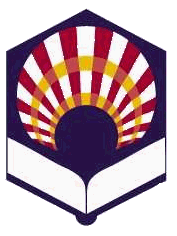A hybrid feature learning approach based on convolutional kernels for ATM fault prediction using event-log data
Hits: 3520
- Áreas de investigación:
- Año:
- 2023
- Tipo de publicación:
- Artículo
- Palabras clave:
- Predictive Maintenance, Fault prediction, Time series classification, Feature learning, Convolutional kernels models
- Autores:
-
- Vargas, Víctor Manuel
- Rosati, Riccardo
- Hervás-Martínez, César
- Mancini, Adriano
- Romeo, Luca
- Gutiérrez, Pedro Antonio
- Journal:
- Engineering Applications of Artificial Intelligence
- Volumen:
- 123
- Número:
- C
- Páginas:
- 1-12
- ISSN:
- 0952-1976
- BibTex:
- Nota:
- JCR(2023): 7.5, Position: 5/179 (Q1D1) Category: ENGINEERING, MULTIDISCIPLINARY.
- Abstract:
- Predictive Maintenance (PdM) methods aim to facilitate the scheduling of maintenance work before equipment failure. In this context, detecting early faults in automated teller machines (ATMs) has become increasingly important since these machines are susceptible to various types of unpredictable failures. ATMs track execution status by generating massive event-log data that collect system messages unrelated to the failure event. Predicting machine failure based on event logs poses additional challenges, mainly in extracting features that might represent sequences of events indicating impending failures. Accordingly, feature learning approaches are currently being used in PdM, where informative features are learned automatically from minimally processed sensor data. However, a gap remains to be seen on how these approaches can be exploited for deriving relevant features from event-log-based data. To fill this gap, we present a predictive model based on a convolutional kernel (MiniROCKET and HYDRA) to extract features from the original event-log data and a linear classifier to classify the sample based on the learned features. The proposed methodology is applied to a significant real-world collected dataset. Experimental results demonstrated how one of the proposed convolutional kernels (i.e. HYDRA) exhibited the best classification performance (accuracy of $0.759$ and AUC of $0.693$). In addition, statistical analysis revealed that the HYDRA and MiniROCKET models significantly overcome one of the established state-of-the-art approaches in time series classification (InceptionTime), and three non-temporal ML methods from the literature. The predictive model was integrated into a container-based decision support system to support operators in the timely maintenance of ATMs.
- Comentarios:
- JCR(2023): 7.5, Position: 5/179 (Q1D1) Category: ENGINEERING, MULTIDISCIPLINARY.







